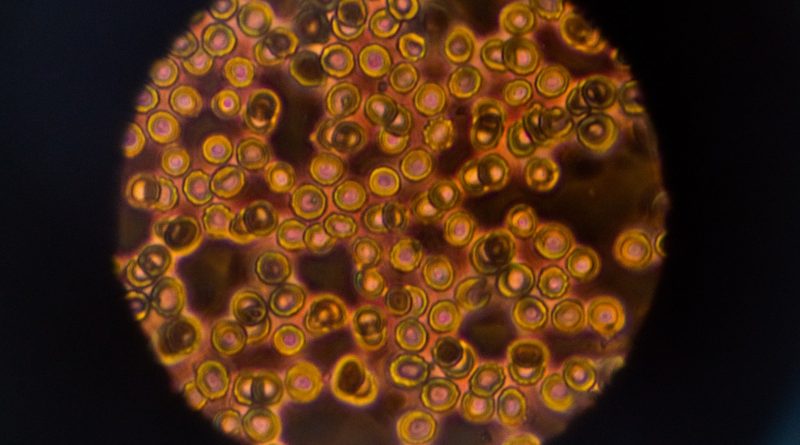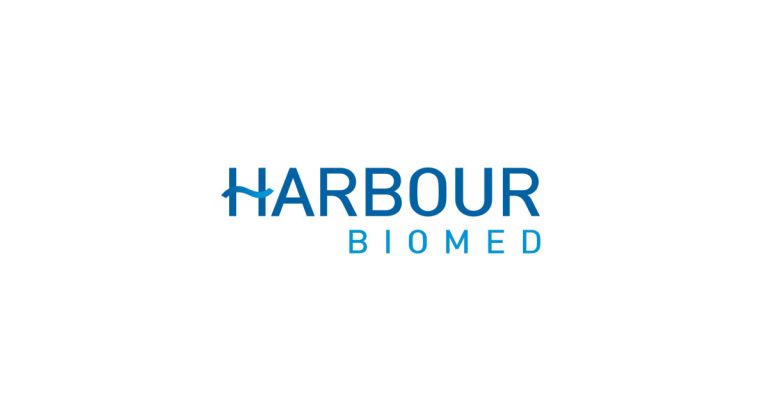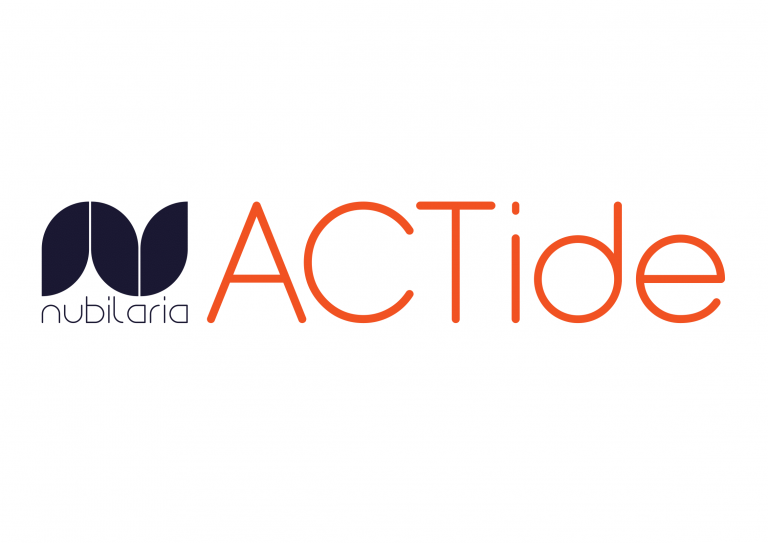FDA approves Roche’s Venclexta combos for acute myeloid leukaemia
Roche revealed on Monday that Venclexta ® (venetoclax) in conjunction with azacitidine or decitabine or low-dose cytarabine (LDAC) has been officially licensed by the U.S. Food and Drug Administration (FDA) as an effective and safe treatment solution for newly diagnosed acute myeloid leukaemia (AML) in adults age 75 years or older including patients with comorbidities for whom the strategic method with intensive induction chemotherapy can not be used as contraindicated.
Under the FDA Accelerated Approval Program in November 2018, Venclexta was awarded provisional authorisation in this setting. The new FDA approval turns Venclexta’s accelerated approval into a complete authorisation for this supplemental novel drug and the effective therapeutic alternative for a significant vulnerable group of AML patients meeting their current needs.
Roche’s Chief Medical Officer and Head of Global Product Development, Levi Garraway, M.D., Ph.D., said:
“Today’s full approval is supported by the significant results that showed that Venclexta in combination with azacitidine extended overall survival for people with newly diagnosed acute myeloid leukaemia who cannot tolerate intensive induction chemotherapy. We are very pleased that this application was reviewed under the FDA’s Real-Time Oncology Review pilot and Project Orbis initiative, helping to bring this treatment option more rapidly to patients in the United States and other countries.”
Basis of the full Venclexta® (venetoclax) FDA approval
The full final approval is mainly based on the outcomes of two Phase III trials, VIALE-A and VIALE-C. The data collected from the VIALE-A clinical study have been published in the New England Journal of Medicine in August 2020 confirming that Venclexta + azacitidine substantially decreased the mortality rate by 34% (overall survival; OS) respectively to azacitidine alone (median OS=14.7 months vs. 9.6 months; HR=0.66; 95 % CI: 0.52-0.85; p<0.001).
Individuals who underwent treatment with Venclexta in combination with azacitidine had substantially higher rates of complete remission (CR) with 37% (95% CI: 31-43) respectively participants treated with azacitidine alone (p<0.001) reached CR with 18% (95% CI: 12-25). The Venclexta plus azacitidine also led to higher rates of CR and CR with partial haematologic recovery (CR + CRh), demonstrating a CR + CRh of 65% compared to 23% with azacitidine alone (p<0.001).
In terms of the tolerance, the most frequent serious adverse effects have been estimated on (≥5%) involving: Low white blood cell count with fever (30%), pneumonia (22%), blood infection (excluding fungal disease; 19%), bleeding (6%), have been observed in 83% of patients who received Venclexta plus azacitidine.
For the VIALE-C study, the full approval was largely based on the reported data reflecting the complete remission’s length and rate. Twenty-seven percent (95% CI: 20-35) of the individuals who received combination treatment Venclexta plus LDAC achieved a CR (median duration of CR (DOCR)=11.1 months) vs. 7.4% (95% CI: 2.4-16) of people treated with LDAC alone (median DOCR=8.3 months). The median OS for people treated with Venclexta plus LDAC was 7.2 months vs. 4.1 months (HR=0.75; 95% CI: 0.52-1.07; p=0.114) for people treated with LDAC alone. These OS results have been considered as statistically insignificant. The most prominent significant adverse reactions (≥10%), observed in 65% of patients treated with Venclexta plus LDAC, were pneumonia (17%), low white blood cell count with fever (16%), and blood infection (excluding fungal;12%).
The FDA submissions included revised findings from the additional Phase I / II trials of Venclexta in people with newly diagnosed AML as encouraging evidence.
Courtney DiNardo, M.D., Associate Professor of the Department of Leukemia, Division of Cancer Medicine at The University of Texas MD Anderson Cancer Center commented:
“The results of the VIALE-A study reinforce the clinically meaningful benefit of Venclexta plus azacitidine for people newly diagnosed with AML. Based on the results of this study, this treatment regimen represents a significant advance for older AML patients, including higher response rates, greater transfusion independence, longer durations of remission, and ultimately significantly improved overall survival compared to azacitidine alone.”
This is the second time that, under the current Real-Time Oncology Review (RTOR) and Assessment Aid new initiatives of the FDA, Venclexta has been assessed. The RTOR pilot model is a more sophisticated examination method to ensure that patients have access to adequate, safe and efficient therapies on time to satisfy patients specific medical needs.
The approval was also given under the newly developed FDA Orbis Programme, which creates a platform for competitive submission and assessment of oncology therapies among various regulatory authorities worldwide. Under Project Orbis, parallel applications have been presented to regulatory agencies in the US, Australia, Canada, Brazil and Switzerland. Furthermore, the FDA has approved five Breakthrough Therapy Designations for Venclexta, two of which are dedicated to patients with previously untreated AML ineligible for intensive chemotherapy.
Venclexta which was engineered by AbbVie and Roche has been manufactured in the US in partnership by AbbVie and Genentech, a Roche Group member, and has been marketed outside the US by AbbVie under the brand name Venclyxto®.
The Phase III VIALE-A Study on the Venclexta® (venetoclax) and azacitidine combo
VIALE-A (NCT02993523) is a phase III, randomised, double-blind, placebo-controlled multicenter trial assessing the effectiveness and safety of the hypomethylating agent – Venclexta® (venetoclax) combined with azacitidine in comparison to placebo with azacitidine, in 431 individuals with previously untreated acute myeloid leukaemia who are ineligible for intensive chemotherapy.
Two-thirds of patients (n=286) received 400 mg Venclexta daily, in combination with azacitidine, and the remaining patients (n=145) received placebo tablets in combination with azacitidine. Patients enrolled in the study had a range of mutational subtypes, including IDH1/2 and FLT3. VIALE-A met its primary and key secondary endpoints.
The Phase III VIALE-C Study on Venclexta® (venetoclax) with LDAC
VIALE-C (NCT03069352) is a phase III, randomised, double-blind, placebo-controlled multicentre study analyzing the safety and effectiveness of Venclexta (venetoclax) administered as supplementation with LDAC, respectively to placebo with LDAC, in 211 people with previously untreated acute myeloid leukaemia for whom intensive chemotherapy induction treatment is not eligible. Two-thirds of the patients (n=143) received 600 mg of Venclexta daily plus LDAC and respectively the remaining one-third of the participants (n=68) have been administered placebo in combination with LDAC.
About acute myeloid leukaemia
Acute myeloid leukaemia (AML) is a heterogeneous clonal disorder of haemopoietic progenitor cells and the most common malignant myeloid disorder in adults. The median age at presentation for patients with AML is 70 years. Acute myeloid leukaemia is a highly aggressive malignant haematopoietic tumour that affects about 20 000 adults in the United States and 18 000 in Europe each year. The treatment of this disease has changed little in the past two decades It has the lowest survival rate of all types of leukaemia.2 Even with the best available therapies, older patients aged 65 and over have survival rates comparable to patients with advanced lung cancer, with a five-year overall survival rate of <5%.
About (venetoclax) Venclexta
Venclexta is a first-in-class targeted drug developed to selectively bind and counteract the protein of B-cell lymphoma-2 (BCL-2). BCL-2 is a malignant protein that, in some blood cancers and other tumours, builds up and stops cancer cells from self-destruction and death – a mechanism known as apoptosis. By selectively inhibiting the protein BCL-2, Vanclexta acts to restart the apoptosis cycle.
Developed in partnership by AbbVie and Roche, Venclexta is marketed in the US in collaboration by AbbVie and Genentech, an affiliate of the Roche Group. Outside of the US, the drug has been commercialized by AbbVie under the branded version of Venclyxto. Together, the companies are engaged in Venclexta / Venclyxto research, which is currently being studied in clinical trials across many blood types and other cancers. In the United States, the US Food and Drug Administration has given Venclexta five Breakthrough Therapy Designations: one for previously untreated chronic lymphocytic leukaemia (CLL), two for relapsed or refractory CLL, and two for previously untreated acute myeloid leukaemia.
About Roche in haematology
For more than twenty years, Roche has been developing medicines for people with malignant and non-malignant blood diseases and has acquired deep experience and knowledge in this therapeutic area. Nowadays, the company is investing more than ever in bringing innovative treatment options to patients across a wide range of haematologic diseases. Approved Roche medicines include MabThera®/Rituxan® (rituximab), Gazyva®/Gazyvaro® (obinutuzumab), Polivy® (polatuzumab vedotin), Venclexta/Venclyxto (venetoclax) in collaboration with AbbVie, and Hemlibra® (emicizumab). Roche’s pipeline of investigational haematology medicines includes T-cell engaging bispecific antibodies, glofitamab and mosunetuzumab, targeting both CD20 and CD3; Tecentriq® (atezolizumab), a monoclonal antibody designed to bind with PD-L1; and crovalimab, an anti-C5 antibody engineered to optimise complement inhibition. Roche’s scientific expertise, combined with the breadth of its portfolio and pipeline, also provides a unique opportunity to develop combination regimens that aim to improve the lives of patients even further.
About Roche
Roche is a global leader in pharmaceuticals and diagnostics, dedicated to scientific research targeting unmet medical needs and enhancing people’s lives globally. Pioneering tailored healthcare with groundbreaking integrated pharmaceutical and diagnostic strategies the company is aiming to provide high quality, personalised medicines to deliver the best possible treatment for each patient. Roche is also a global leader in both in vitro diagnostics and tissue-based cancer diagnostics, as well as a frontrunner in diabetes management.
Established in 1896, Roche aims to explore new strategies of diagnosing, preventing and treating diseases, and thereby making a sustainable contribution to society. Through partnering with all relevant stakeholders, the organisation further strives to increase patient access to medical advancements.
More than thirty Roche-developed medicines, including life-saving antibiotics, antimalarials and cancer medications, are included in the World Health Organization’s Model Lists of Essential Medicines. In addition, Roche was listed by the Dow Jones Sustainability Indices (DJSI) as one of the most sustainable companies in the pharma industry for the eleventh consecutive year.
Headquartered in Basel, Switzerland, the Roche Group is operating in over 100 countries and has recruited approximately 98,000 employees worldwide in 2019. Roche spent CHF 11.7 billion in R&D in 2019 and reported CHF 61.5 billion in revenue. Genentech, in the United States, is a wholly-owned Roche Group member. The Roche Group is also the majority stakeholder in Chugai Pharmaceutical, owning 62% of the drug manufacturing company headquartered in Tokyo, Japan.
For more information please visit: www.roche.com
Original Source: Roche https://www.roche.com/media/releases/med-cor-2020-10-19.htm
Related Companies
Advertising
More Headlines







